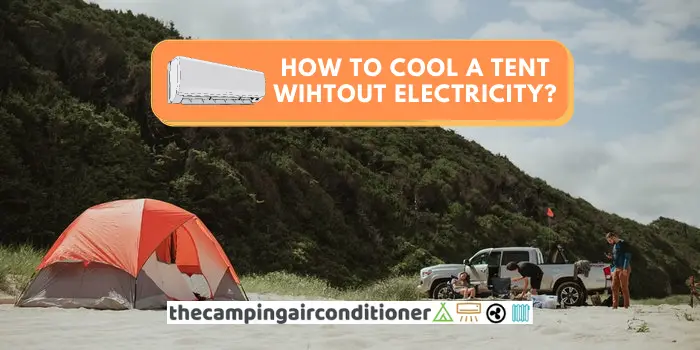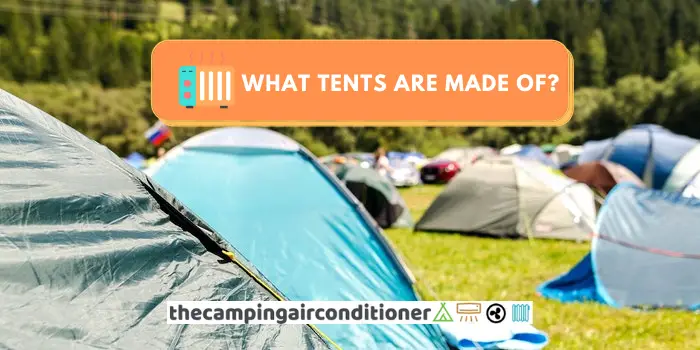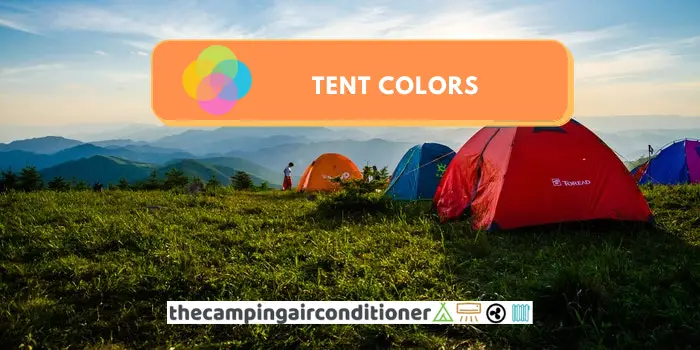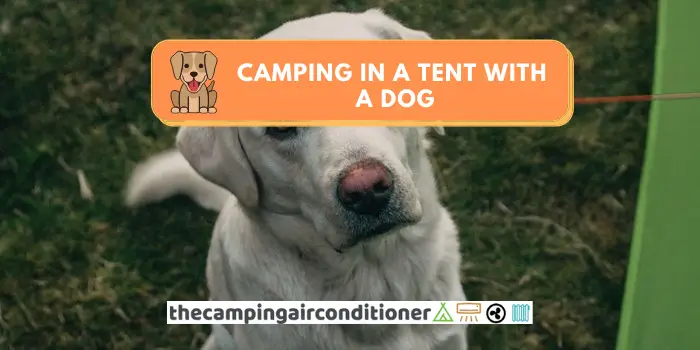You are probably planning your next camping trip and wondering how to bring and store food at your campsite, right?
While some people use cooler boxes, plastic containers, and even camping fridges to store supplies, many campers wonder whether it is possible to keep food in their cars?
Yes, you can store your food supplies in your vehicle. However, you need to be aware that it might attract insects and animals, such as bears and racoons, which might create unexpected and dangerous events on your trip, and pay attention to campground rules.
Another point of concern is the high temperatures inside your vehicle. If your car is parked in a sunny area or can get warm quickly because of local weather conditions, your supplies might get spoiled, especially those that require refrigeration (meat, milk, etc.)
So, how to do it safely? We prepared some special and wise tips – keep reading them below!
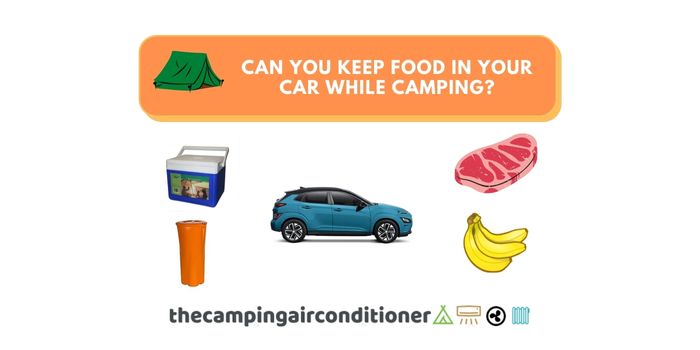
By the way, The Camping Air Conditioner is sponsored by readers. When you buy through one of our links, we may earn an affiliate commission at no extra cost to you.
How to safely store food in your car while camping?
The major concern around food supplies storage on a camping trip is attracting dangerous animals.
Even though cars are theoretically physically insulated, the smells from containers can easily spread across the campsite and draw the attention of bears and other species.
The next paragraphs will detail some wise tips on how to safely keep store your supplies.
#1 Check your camp ground rules and camping location
Each camping ground has its own specific rules for drinking alcohol, length of stay, behaviour and even food storage rules and guidelines.
As a general rule, the National Park Services from the US guide include the following tips to avoid bears:
- Some parks will allow you to store food in your car, as long as windows are kept close during the day. During the night, they should be removed and put in a locker (if you are in the US, check the NPS for more info regarding your site).
- Always keep your tent and surrounding areas clean, and never leave food scraps around your camping location (this includes keeping your dishes and cutlery clean – wash them straight away after a meal).
- DO NOT store food in your tent – the last thing you want in the middle of the night is being visited by a racoon or rat after your food.
Bear in mind that each camping site will be prone to the presence of different animals. For example, while black bears love forests with plenty of fruits and nuts tree options, racoons prefer woodland areas with high humidity (by the way, we have prepared special tips and hacks on how to camp in high humidity in this article).
Therefore, check your camping location characteristics and which animals are common in that area so that you can bring the right accessories to store food in your car and have a safe trip.
#2 - Keep car door and windows closed all the time
Even though it might look that cars are insulated, the truth is that some animals have an incredibly advanced sense of smell and can detect food aromas from distances that are unthinkable for human beings.
For example, a black bear can sense odours over a mile away, which is impressive and scary at the same time!
Keeping the doors and windows of your car closed is mandatory and might somehow decrease smells spreading, but, to be honest, it will not be 100% effective in keeping animals away.
If you are camping in a small car, you might check some special tips on how to comfortably do it in this article.
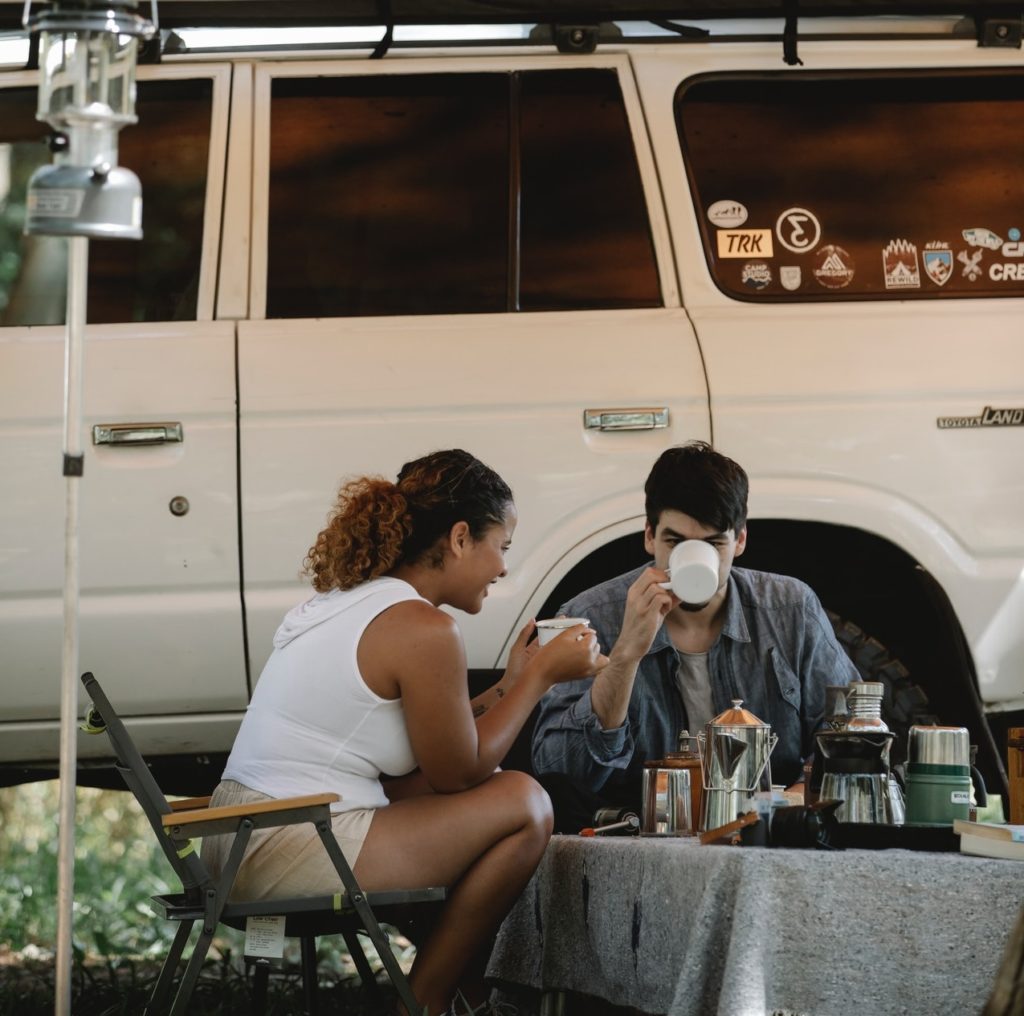
#3 - Choose your camping food (and gear) wisely
Scent foods are the ones that will most likely make animals come around, as their smell highly attracts them. The list below details some scent and unscented foods – if possible, stick to unscented options.
| Unscented Foods (Do no attract animals) | Scent Foods (attract animals) |
|
|
Important note: Be careful – Cosmetics, deodorants, scent soap and shampoos might also attract bears.
#4 - If you are bringing scent food, store it in odour-proof containers.
We get it – camping without scent food might be impractical for some campers. What to do then? Consider the following:
a) Bring a bear/animal safe and resistant lit storage, such as Frontiersman 11.86L storage container (Water and Airtight – picture below), which prevents food aroma from attracting animals. It is slim, effortless to carry around (even for backpackers), and weighs only 3lb. It will easy fit the back of your car.
b) Use odour-proof and airtight bags to store your meals and, if possible, store them inside a well-insulated cooler to keep the likes of meat and fish.
c) Wrap your food in aluminium foil or plastic wraps, which will help insulate its smells.
#5 - Keep the food hidden and covered in your car
So far, our measures have concentrated on keeping animals away from you and your tent.
However, you need to understand that you might be in their natural habitat, which means they might be around, even though there are no smells attracting them.
As a safety measure, keep food hidden in your car. How to do it? Easy:
- Put your supplies in the car trunk
- If not possible, cover your food containers with a blanket
- Never leave any can or smelly food open. Apart from bears, you might attract mice, cockroaches and other small insects.
#6 - Choose your car parking area wisely
Temperatures can get extremely high in a car with closed doors and windows and spoil your food, even if it is parked in the shade. According to this study from Arizona State University, the dashboard of a car can reach up to 160 degrees Fahrenheit when exposed to the sun for one hour (see picture below).
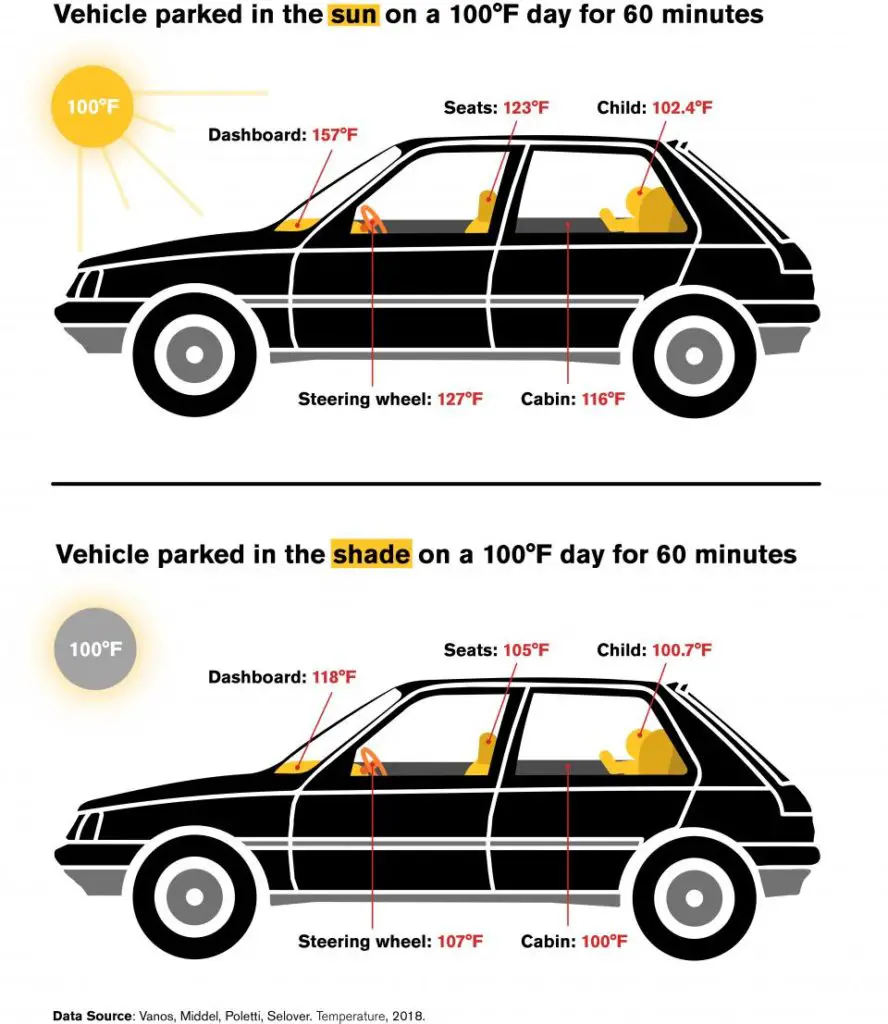
The USDA considers the range of temperature between 40 and 100 degrees Fahrenheit as a “danger zone” and explains that in the interval, the bacteria growth level can double and quickly spoil perishable food (especially those that require refrigeration).
Therefore, be careful when choosing your car parking area – give preference to shady areas with plenty of air circulation so that temperature inside your vehicle stay out of the “danger zone”.
Always remember – it is recommended that you never leave food without refrigeration for more than 2 hours. And how to keep food refrigerated in your car while camping? Fortunately, there are portable and compact camping fridges (see below).
#7 - Consider a 12-v car camping fridge
Yes, you are right – many 12v mini-fridge models can run from your car battery without draining it (you might need to turn your car on every now and then).
BougeRV 12V refrigerator comes at an excellent value for money, decent size – 23 quarts (21.7L), lower power consumption, and fast cooling, which might be ideal for your trip.
However, if you are constantly camping or will bring plenty of meat for BBQs, consider a larger model, such as AstroAI 12v refrigerator – 58quarts (54.88L).
- Outstanding Capacity - up to 55L (3 different sizes)
- Fast cooling
- Ideal for family camping
Final Thoughts
If you are planning to leave food in your car during a camping trip, be mindful of risks involving attracting animals, insects, and potential food spoiling caused by high temperatures.
One of the most effective ways to keep animals distant from your food is ensuring that they are stored in odour-free / airtight containers, such as bear canisters, and keeping them hidden inside your car.
If you are storing food that needs refrigeration, such as meat, fish, and milk, make sure that your supplies are kept cold – never leave them unrefrigerated for more than 2 hours.
For this kind of food, it might be a good idea to consider a small 12-v camping fridge, such as BougeRV 12V refrigerator.




